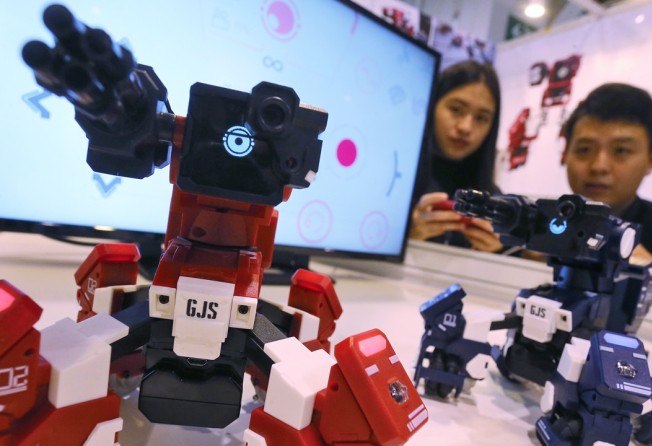Shenzhen mech robot start-up wants to take us back to the good old days when robots were fun toys
GJS is making robots for hobbyists but also hoping to capitalise on educational market

While robots have been evolving to be of more use in people’s daily lives – from helping with household chores to making production lines more efficient – the founders of Shenzhen-based GJS Robot want to take us back to the days when they were purely fun, childhood toys.
GJS Robot, established in 2015, is the start-up behind app-controlled fighting bots Ganker and GEIO, which are equipped with sensors that can detect attacks and keep account of “bloods”, or the score, within the app controlling the robot.
Print option is available for subscribers only.
SUBSCRIBE NOW